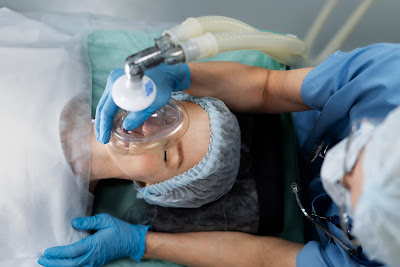Navigating the Next Chapter of Womanhood: Embracing Change After Menopause and Empowering Women's Health
Menopause is a physiological landmark that signifies the end of a woman's reproductive journey. It is typified by complex hormonal changes that impact multiple facets of health. This normal shift, which usually happens between 45 and 55 years of age, calls for a deeper investigation into its medical complexities and the possibility of empowering women via all-encompassing healthcare approaches. That’s why a Fellowship in Obs & Gynae India is one of the most relevant courses that any health care professional should pursue.
Fundamentally, the slow decrease in the ovaries' ability to produce progesterone and estrogen causes menopause. Numerous symptoms are brought on by these hormonal changes, including vasomotor symptoms like night sweats and hot flashes as well as mood swings, sleep problems, and genitourinary problems. Understanding the biological causes of these symptoms is essential to developing therapeutic strategies that work.
Online Fellowship Course in Obs & Gynae teaches about the hormone Replacement Therapy (HRT) has long been a mainstay in the treatment of menopausal symptoms. It entails adding estrogen and occasionally progesterone. HRT's hazards and benefits can vary, thus using it properly needs taking into account each person's unique health circumstances. Making an informed decision on hormone replacement therapy (HRT) requires a complete assessment of a woman's medical history, including her cardiovascular health and breast cancer risk.
Fellowship in Obstetrics and Gynecology In addition to medication therapies also guides about lifestyle changes are essential for controlling menopausal symptoms and enhancing general health. Frequent exercise has been demonstrated to improve bone density and cardiovascular health while reducing symptoms like hot flashes and mood swings. A healthy diet that includes enough calcium and vitamin D is essential for reducing the risk of osteoporosis, which is heightened by hormonal changes that occur after menopause.
During this stage, it's important to pay attention to mental health in addition to physical problems. Menopause can be accompanied by mood swings, anxiety, and sadness; the effects these conditions can have on a woman's health should not be understated. When healthcare doctors and mental health specialists work together, they can provide complete support that includes counseling, psychoeducation, and, when needed, pharmaceutical therapies.
Menopause also signals a shift in emphasis toward preventative healthcare. In light of the changing health landscape, routine screenings for diseases including osteoporosis, breast cancer, and cardiovascular disease become essential. Long-term results can be enhanced by educating women about these exams and encouraging a proactive attitude toward healthcare. Therefore, Fellowship Obs & Gynae is an essential course for healthcare practitioners.
Beyond providing for the specific needs of each patient, the medical community also has a role in promoting greater public awareness and menopausal health research projects. To improve menopausal healthcare, it is imperative to de-stigmatize menopause, create a safe space where women may talk candidly about their experiences, and promote research into cutting-edge therapies.
In summary, menopause is a complicated medical condition that calls for an all-encompassing approach to treatment. A comprehensive plan is necessary, encompassing everything from hormone treatment and lifestyle modifications to mental health support and preventive measures which can only be learned after doing a Fellowship Course in Obstetrics and Gynecology India.



Comments
Post a Comment